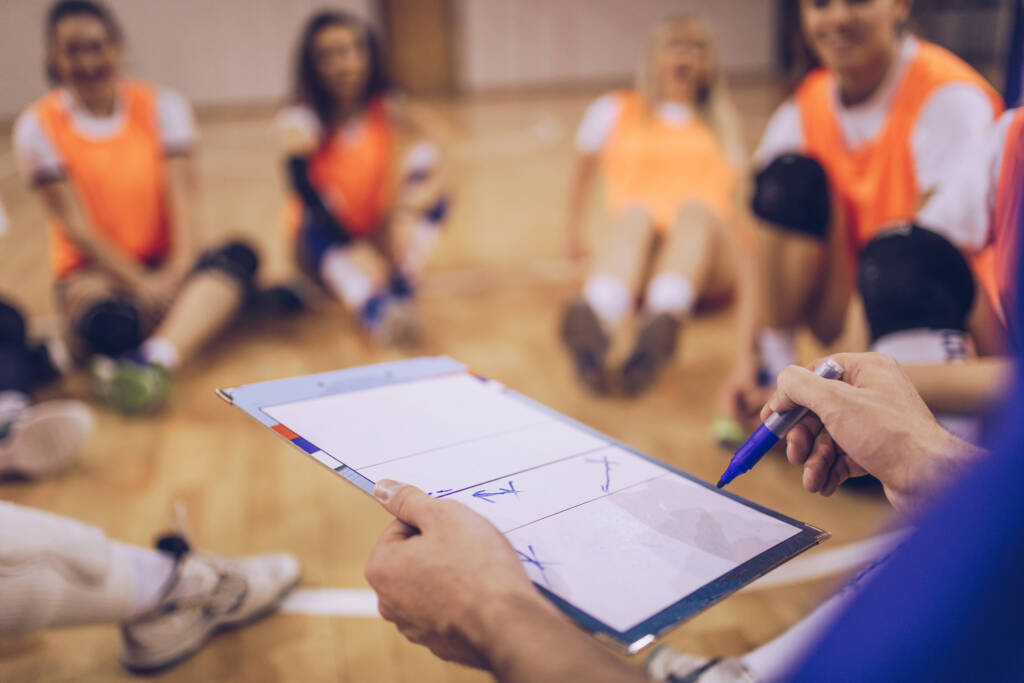
Intro to Coaching

Introduction to Coaching focuses on the various responsibilities of a coach and the skills needed to successfully fill this important position. Throughout the course, students will explore various coaching models and leadership styles, sports nutrition, and sports psychology, as well as safety, conditioning, and cross-training. Students will learn effective communication, problem-solving, and decision-making skills. The course will also introduce students to game strategy, tactical strategy, skills-based training, and coaching ethics.
During this course, you will learn career-related skills and earn a badge for this accomplishment. A badge is a digital certification of your career-related learning that you can share on social media or with higher education platforms, colleges, potential employers, peers, and colleagues. Select this link to learn more about badges.
Major Topics and Concepts
Unit 1: The Role of a Coach
- 1.1 Sports Careers & Venues
- 1.2 What is a Coach?
- 1.3 Coaching Philosophy
Unit 2: Building a Team
- 2.1 Organization
- 2.2 Leadership
- 2.3 Communication
Unit 3: Team Safety
- 3.1 Sports Safety
- 3.2 Health-Related Fitness
- 3.3 Understanding Movement
Unit 4: Training Athletes
- 4.1 Sports Conditioning
- 4.2 Game Play & Strategy
- 4.3 Sport-Specific Training
Unit 5: Beyond the Playing Field
- 5.1 Sports Nutrition
- 5.2 Individualized Coaching
- 5.3 Life Coaching
Competencies
The Role of a Coach
Students will demonstrate an understanding of the role of a coach by describing the responsibilities of the coach, summarizing the qualities of a good coach, and explaining coaching philosophies.
Team Building
Students will demonstrate an understanding of team building by describing team organization, explaining team leadership, and explaining team communication.
Team Safety
Students will demonstrate an understanding of team safety by describing sports safety, explaining health-related fitness, and describing sports movement.
Athlete Training
Students will demonstrate an understanding of athlete training by describing sports conditioning, explaining gameplay strategies, and describing sport-specific training.
Sports Culture
Students will demonstrate an understanding of sports culture by describing sports nutrition, explaining individualized coaching, and describing lifestyle coaching.

